EUROPE’S CHOICES
The European Union and its predecessors have again and again be confronted with challenges and crises. But it seems that today there are multiple crises which demand more choices and decisions than anytime before. All discussions I had recently in Berlin at the annual conference of the European Council for Foreign Relations, at the summer school on the island of Sipan near Dubrovnik, or with students and at conferences in Belgrad and in Vienna made it clear that nothing is self-evident, no development can be taken for granted. Especially the younger generation discusses alternatives and wants ideas and arguments which way to go forward not mentioning those – still a minority – who want to go backwards.
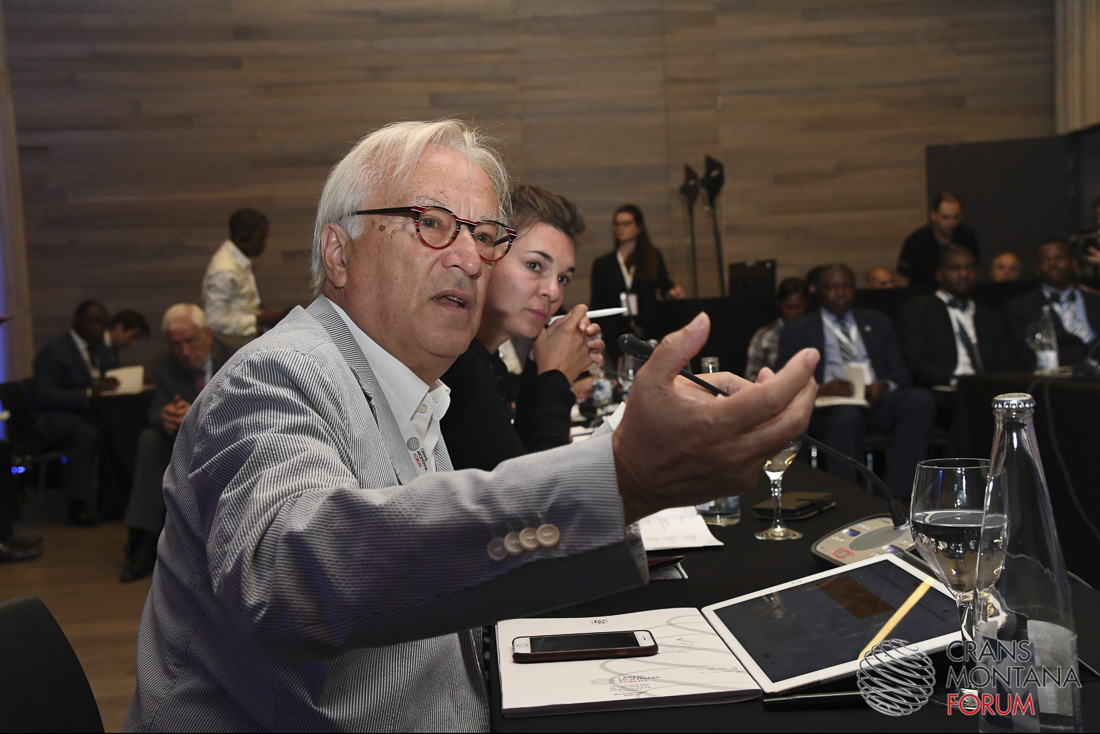
1. A Europe of multiple speed or of multiple tracks?
For many decades we in the European Union have taken the position, that principally we all want to develop and go to the same Union – only with different speed. But already with the Euro it became clear, that some countries – even if they fulfilled the criteria – do not want to join the common currency – at least for the time being. Concerning the Schengen zone on the other hand some countries who were not member joined. We have to take that into account if we think about the future European Union.
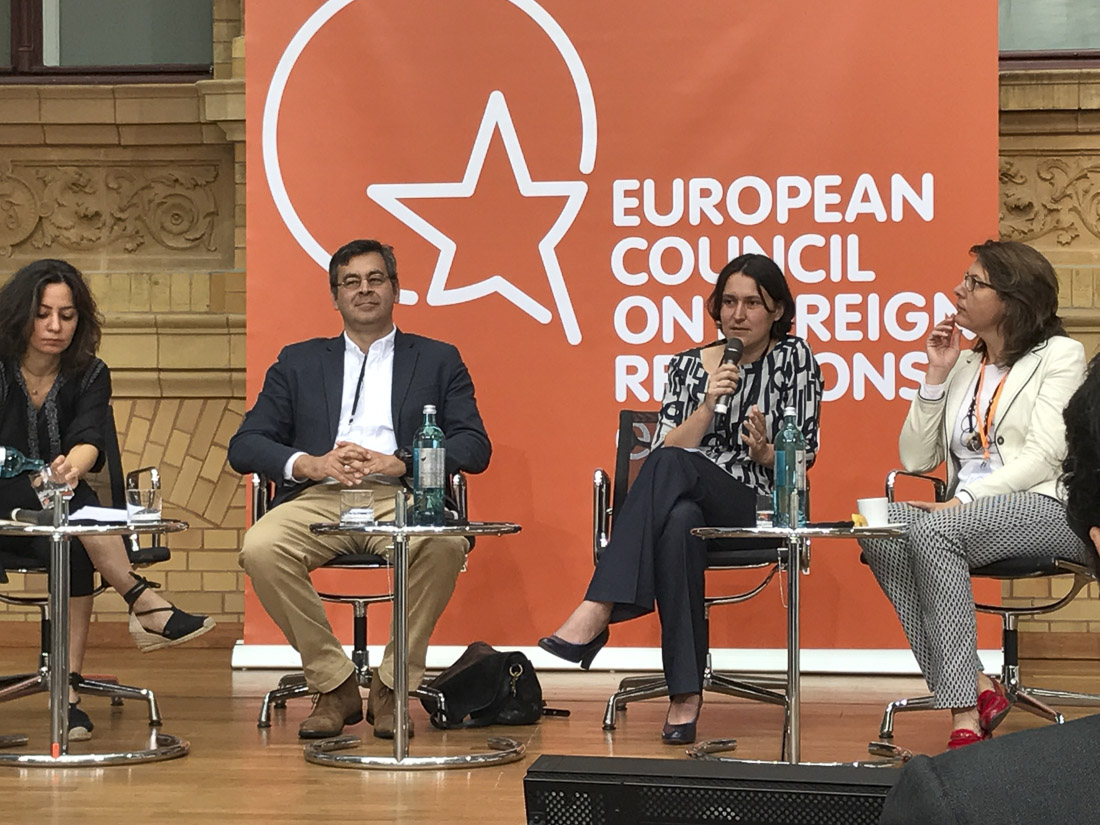
Perhaps we should think more about a Union of multiple tracks, even if that makes the European unification process more difficult and less transparent for ordinary citizens. It would enable different countries to participate at the unification process according to the priorities of their own population.
Special attention has to be given to the question of security policy and defence. People expect from a European Union security and protection. But the definition of what kind of security or threats – internal or external – have priority is varies from country to country. Nevertheless Europe needs a slow but steady way towards a Union of Security where NATO plays an important role but where non-NATO members can also participate. Some countries could start with a Security Union with a wider security concept and a more comprehensive policy. It would be dangerous to reduce security to its military dimension.
2. Euro: muddling through or completing the Eurozone?
Contrary to many predictions from within and outside the Eurozone the Euro is still alive and strong. But that does not mean that its longterm viability is guaranteed. The institutions of the Eurozone are still too weak to manage easily another crisis. The proposals of the new French President Macron to establish a common finance minister and a Eurozone budget are demonstrating a way forward to build bridges between the richer and the poorer countries of the Eurozone.
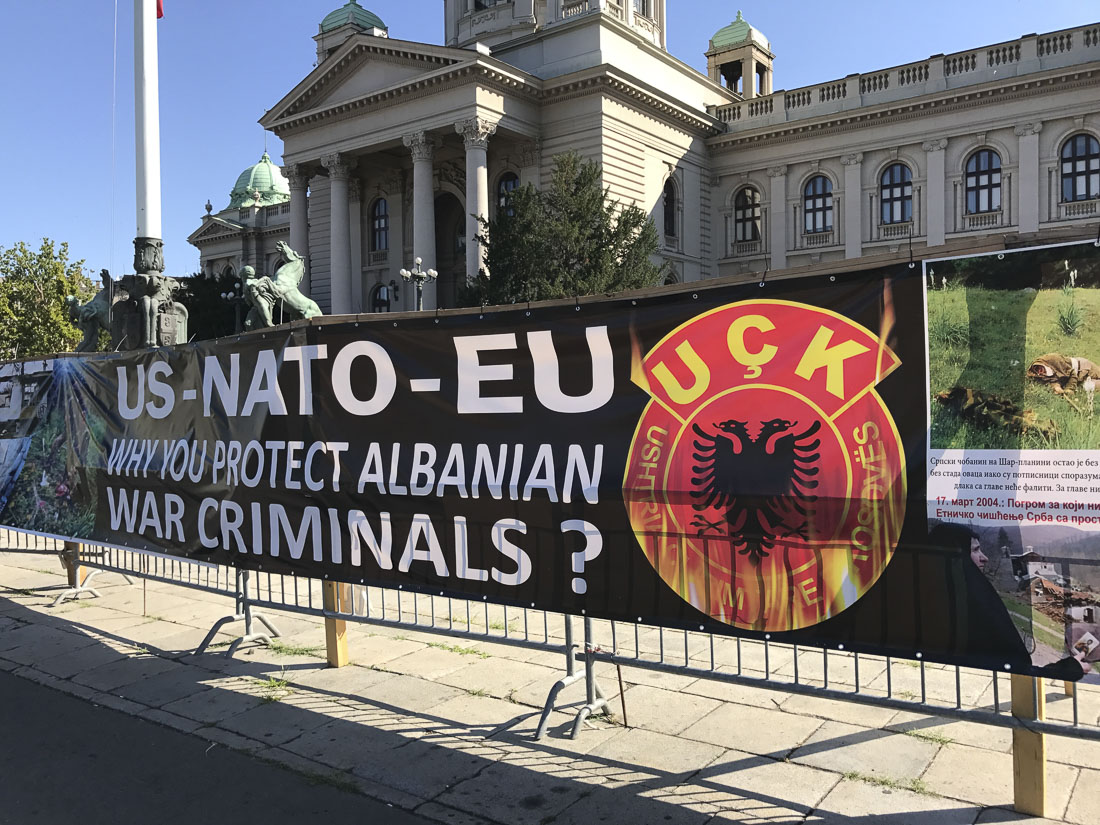
Of course an institutional build up does not substitute reforms on the national level. But these reforms must concentrate on the structural changes necessary to modernize a country and not just on cutting social expenditures. The reforms pressed on Greece are not the reform needed to mobilize the strength of a country to adopt itself to the future task of being part of a competitive Europe and global world. Parallel to these reforms Germany must accept to bring in its strength to a Eurozone of solidarity and must think about the overall competitiveness and not only about further strengthening Germany’s productivity.
3. A competitive Europe or/and a Europe which protects?
Again and again a Social Europe is put on the agenda and again and again it is rejected or watered down. Europe cannot substitute or regulate the national security systems. But Europe should give social aims from job creation to a balanced income and wealth distribution a strong push. And it must combine openness for international trade and globalization with support for those who would or will loose because of the openness of our economies. Again the new French President expressed his will for a Europe which protects.
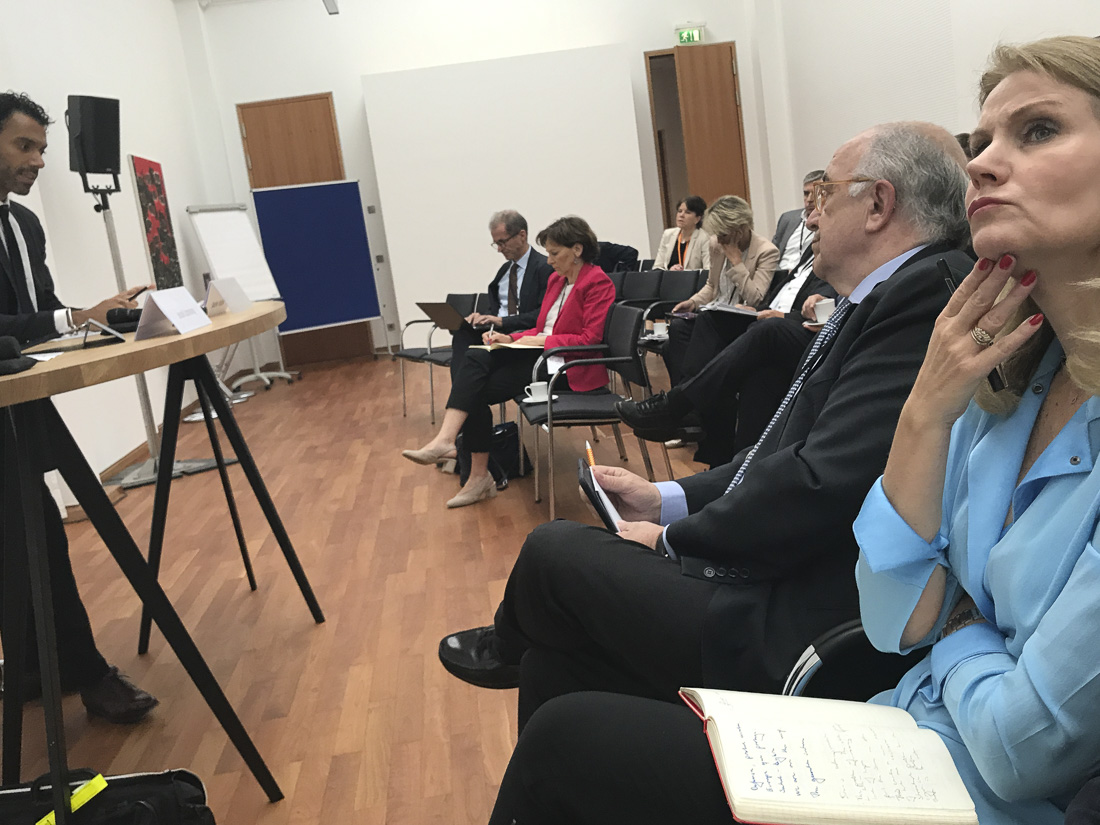
Protection of the vulnerable members of society does not mean and must not mean protectionism. Protection means to empower also the weak to reorient and retrain themselves in a society and economy which is permanently in change – including technological change. Modern technologies and especially information technologies should be the basis of a new active industrial policy which would contribute to employment and economic and social security. Many of these technologies could also help to „green“ our economies and increase Europe’s sustainability.
4. Migration: close the door or manage the flows better?
Migration including forced migration is seen by many as a threat to jobs, welfare and security. The European Union must uphold the right to apply for asylum and give people who are in big danger the possibility to find refuge inside the EU. It must also offer the first countries of refuge – mostly near the countries of origin of the refugees – help and support.
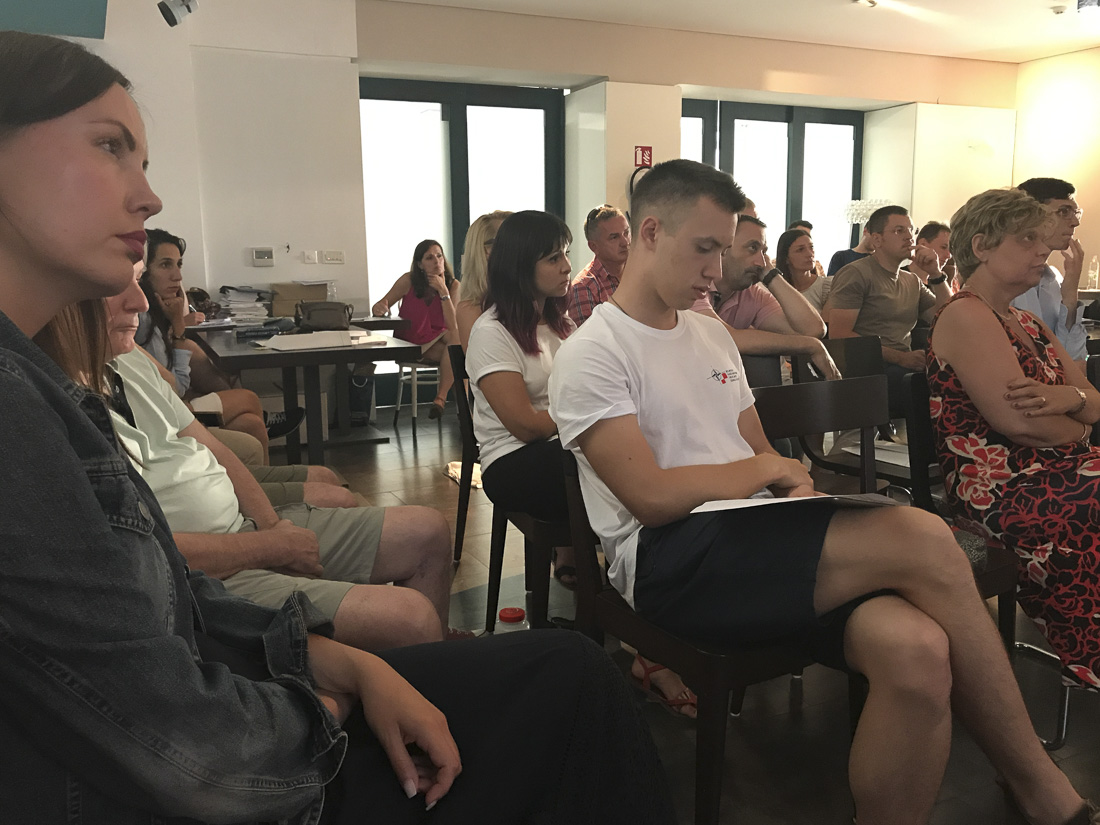
Concerning the – economically motivated – migration the EU must strongly cooperate with the countries of origin and transit to reduce the migration flows and to combat the illegal traffickers and criminal groups. This fight is also part of the anti-terrorist campaign of the European Union which anyway can only succeed on the basis of cooperation with the local authorities. Parallel ways of controlled and legal migration must be opened by the EU and its member countries. Overall the Development Cooperation of the EU – especially with countries in Africa – must give the rising number of young people the chance to earn a decent living in their home country and to avoid the risky path of illegal migration.
5. Extending the EU or stopping enlargement?
In the past the EU was always a Union which combined enlargement and deepening. Now deepening is not highly placed on the agenda. What about enlargement? Turkey or better President Erdogan has withdrawn himself and „his“ country from the values and civil rights which are the basis of joining the EU. Recently the EU Parliament asked for the suspension of EU-Turkey accession talks should Erdogan proceed with implementing an authoritarian constitution. The time to prepare for an alternative link between Turkey and the EU has come and should be used productively by both sides.
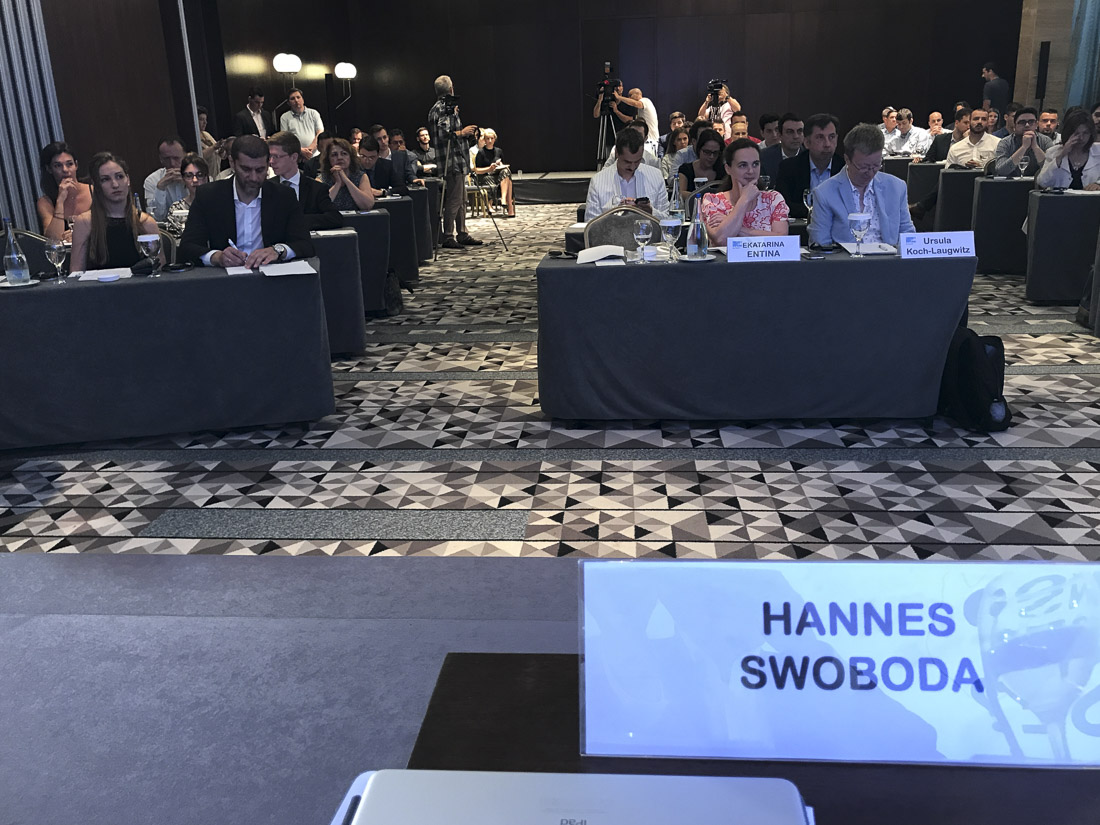
Concerning the Balkans things are different. In several countries especially in Albania to Macedonia we see some progress. Bosnia-Herzegovina is still in a fragile situation. Serbia is expressing its clear will to join the EU but many in Serbia are playing with the idea to see in Russia an alternative ally – and Russia supports this with a lot of propaganda. The Kosovo issue is still not solved and also internally you find many divisions in the Kosovo political scene. Montenegro is the most advanced country concerning negotiations. On the one side it is far from ready to join and on the other side it fears to have to wait for other countries of the region to join the EU. But the EU must give the Balkan countries and its citizens hope to stabilize the region in our South East. Intermediate steps of integration should be envisaged.
6. Neighborhood and Foreign Policy: value based or pragmatic?
The European Union and its representatives always underlined – and will do so in future – that the EU is a value based Union. To speak about European interests was often anathema and not politically correct. But recognizing that even inside the EU it is not easy to preserve and defend the basic values – or better human and civil rights – we have to add to that orientation the fight for European interests. Those interests can be of economic nature but include also the interest of stability and fighting terrorism. Knowing that stability by authoritarian and dictatorial regimes can be very fragile and tricky we should be careful for strong cooperation with such regimes. But regime change from outside is mostly disastrous as we can see in Iraq and Libya quite openly.
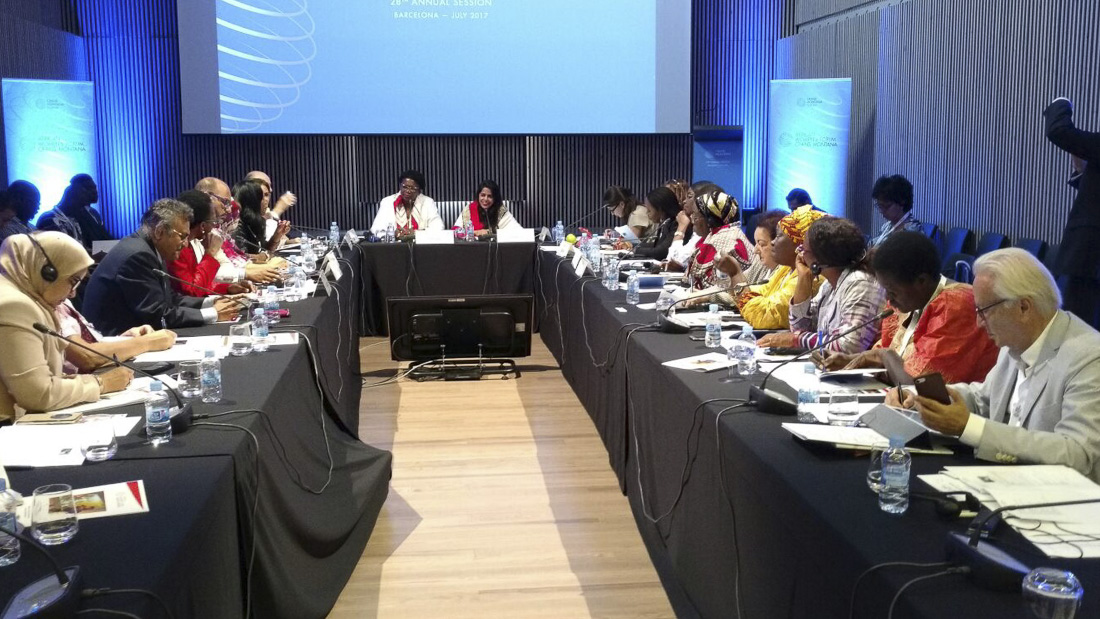
The EU must never give up its principles which were the basis of the European unification. But we have to recognize that many of our neighbors do not adhere to the same principles. And now also the new US President is clearly disassociating himself from some of these „Western values“ and our principles of fighting against climate change etc. The EU must be clearly expressing its interests but also try to pragmatically bring them into its international relations. To defend values and to find pragmatic ways of preventing and defeating wars and terrorism are not in contradiction.
7. Continue to align to the US or go for its own ways?
The US has since long been an ally militarily, politically and economically. But the US always saw itself in an exceptional position. It regarded itself as the leader of the „free“ world and after the break down of the Soviet Union as the only global super power. The positions of President Trump make it easier to define the specific European interests and its position and global role. It cannot be in the interest of Europe to cut the many links to the US but we should not rely too much on their policies from Iran via Africa to China and Russia. If necessary Europe has to define its own and even separate ways and policies.
8. Russia: first enemy or strategic partner for European security?
Russia today creates the most headache to the EU. It was long seen as a possible strategic partner and became for many the major threat for Europe’s security. The last dip for changing our attitude has been the Ukraine crisis and Russia’s strong involvement in Eastern Ukraine and the occupation of the Crimea.
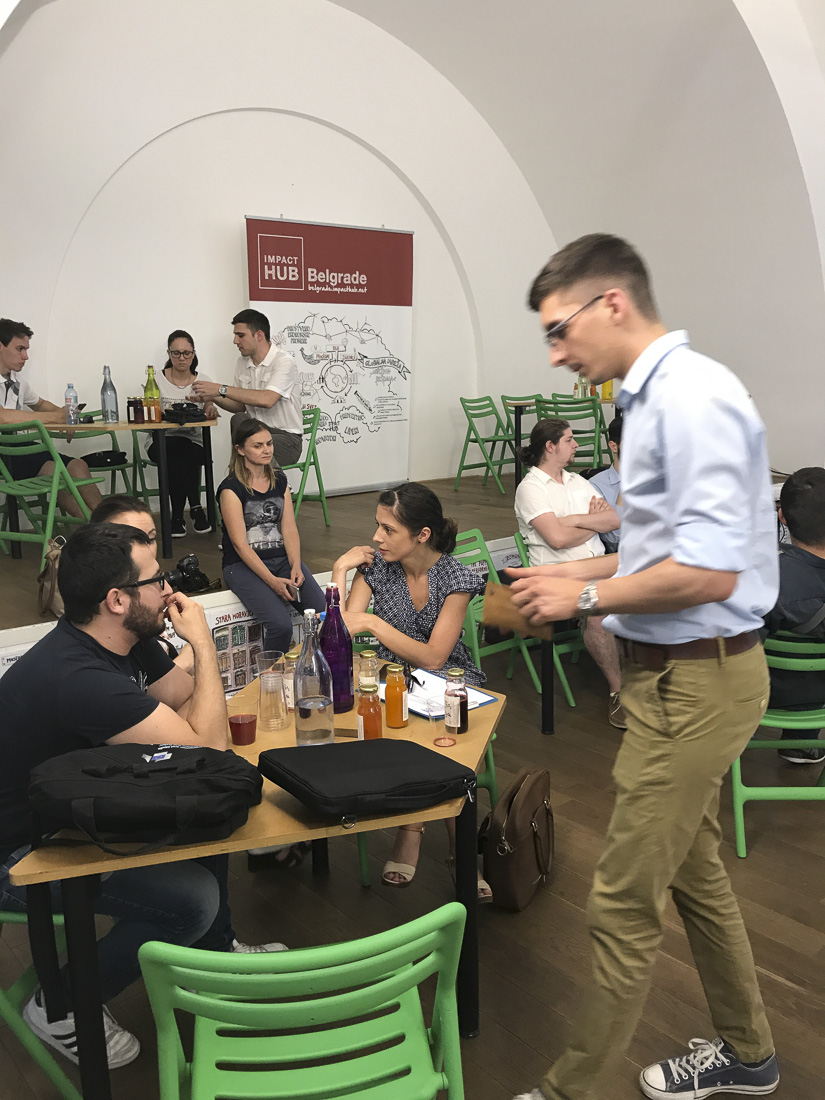
Recognizing the illegal actions and the increasing interference into national decision making we should also recognize the Western mistakes after the break down of the Soviet Union and its empire. The „winner takes it all“ policy of the West, especially of NATO but also of the EU provoked Russia and its President Putin when Russia became economically stronger. Whatever the mistakes of the past, we must find ways to restart a constructive dialogue with Russia, because European security without Russia is not possible or only with an extensive and costly rearmament program which the West could win but which would deprive us from the peace dividend of the end of the Cold War.
9. China: partner for global economic connectivity or threat for EU independence?
China has clearly a long term strategy of extending its economic links to give this vast country and its population a strong viability. The One Belt, One Road initiative is strongly directed to the countries of the European Union. The EU and several of its member countries try to reject China’s initiatives because they fear too much Chinese influence. Other countries are quite open and helpful in promoting Chinese investments.
The EU should rather cooperate with China as a big and raising economic power but at the same time express its specific interests. Cooperation with China cannot be based on their interest alone. China’s activities in Europe must clearly respect European interests and that this happens the EU must define these interests and express them unequivocally towards China and its companies. The strong economic power of China often mixed with political influence must be met with clear policies of preserving Europe’s interest and strong role in globalism.
